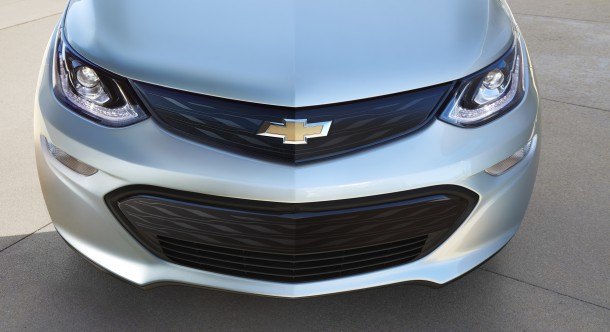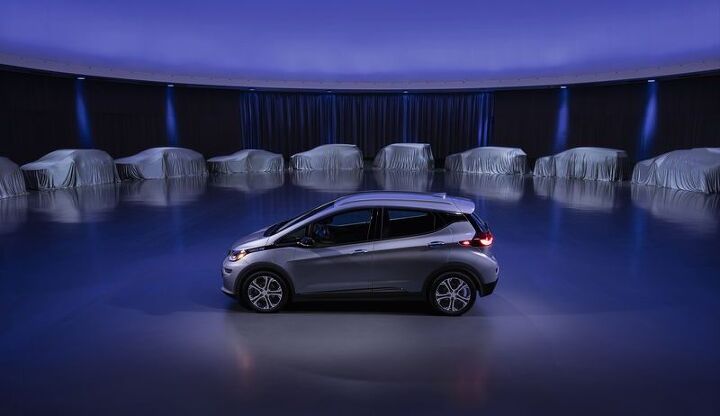#Mobility
Please Stop: Toyota Design Head Envisions Future Without Mass-market Automobiles
It’s starting to feel like people in the automotive industry simply cannot help but blurt out ludicrous claims involving a hypothetical future nobody on the outside seems to care about. These people, in charge of the the automobile’s ultimate form, appear to be so singularly obsessed with the vague concept of “mobility” that they can’t imagine any other alternative.
This week’s example came from Simon Humphries, the new general manager of Toyota’s advanced R&D, who mused about a tomorrow that didn’t need mass-market models. However, we’re not satisfied to condemn the design chief. Media outlets deserve a share of the blame for promoting these concepts without much logical backing.
What Happens When Two Lyft Drivers Collide?
True story: when my pal “Creighton” decided to start using his Charger Hellcat for Uber, he called his insurance company and had them upgrade his policy to commercial status. Doing so pretty much wiped out any profit that he was going to make as an Uber driver, but he still made the call because he’s the kind of person who doesn’t like to take unnecessary risks.
Getting rideshare-specific insurance isn’t always prohibitive, but during my conversations with various Uber and Lyft drivers I’ve yet to hear of anybody besides Creighton actually ponying-up for real additional coverage. Most of these people are living pretty close to the bone and they don’t really think they have that much to lose in the first place. Plus, there’s the fact that both Uber and Lyft offer some additional coverage as part of their driver agreement.
That’s the theory of it, anyway. What happens when two Lyft drivers collide? Yesterday, someone found out.
North American Skies Will Be Filled With Flying Cars in 10 Years: Uber CEO
Uber Technologies Inc.’s chief executive, Dara Khosrowshahi, predicts a nearish future where civilians whiz around in sky-bound automobiles.
“There will be people flying around Dallas, Texas,” Khosrowshahi said at the Digital Life Design conference in Munich, his first work-related appearance in Europe since taking over as Uber’s CEO last year. “I think it’s going to happen within the next ten years.”
Considering we’ve been waiting on flying cars for roughly 100 years, what’s another decade?
We’re kidding, of course. Anyone with a modicum of common sense understands that mass-produced floating automobiles are pure fantasy. Work on such vehicles hasn’t really progressed all that swiftly and there’s been no breakthroughs in the technology, either. The best anyone seems to be able to do is build massive drones ( which crash) or automobiles that can be converted into airplanes.
Does that make Khosrowshahi a bearded liar?
Enter Ford X: Automaker Buying Two More Mobility Companies
Not to be outdone by General Motors’ excursion into autonomy, Ford Motor Company has announced it will purchase two mobility startups: Autonomic, which makes self-driving software; and TransLoc, which makes transit apps.
While Ford says it made a significant investment into the California-based Autonomic last year, it’s now rolling the company into a new team for developing mobility business models called “Ford X.”
This is familiar territory, as the Blue Oval also promised to put around $1 billion into Argo AI last year. The artificial intelligence startup is supposed to help Detroit automaker develop a “virtual driver system” for future autonomous fleets. But will the company’s strategy of acquiring businesses work as it hopes to reshape itself into a different kind of carmaker? Ford thinks so.
Yet More Evidence That America's Car Addiction Is Not About To Die
New York City and San Francisco, besides having the most tailored beards and bike activists on both coasts (Note: Portland might have something to say about this) might not like some of the data emerging from the University of Michigan.
While some Millennials, especially ones working at startups and paying the equivalent of a Cadillac for a shoebox apartment in a trendy, upcoming part of their building, might think personal car ownership is as dated a concept as VCR tapes and telephone banking, there’s a vast gulf between that lifestyle and that of the average American. It’s clear to see in the U-M Transportation Research Institute’s latest findings.
The data also pours a cold glass of asparagus water over an earlier poll that suggests we’re poised to kick car ownership to the curb.
Mazda's Rotary Engine Might Appear in a New Toyota Project, But You're Going to Be Disappointed
With news of Mazda’s rotary engine development surfacing throughout the past year, we’ve been actively following its progress. Of course, die-hard rotary fans have been less enthused, as all information points to the powerplant continuing on as a gas-driven range extender for EVs — rather than the heart and soul of a high-performance coupe. It could still happen, but it’ll be a long wait.
The prognosis recently became more interesting, though enthusiasts aren’t likely to feel any better about it. Toyota is hinting that Mazda’s rotary could be the perfect solution to a concept vehicle it’s currently working on. Unfortunately, that unit is the e-Palette — an autonomous box riding atop the company’s new battery electric platform, with more applications as a mobile store than as a personal conveyance.
Toyota Losing Sanity Over the Automotive Industry's Uncertain Future
Toyota Motor Corp. is shuffling its management team because it’s worried about the automotive industry’s uncertain future. The changes, announced this week in Tokyo, take effect at the start of the new year. Toyota wants to diversify its corporate leadership in order to handle the changing shape of car building and the growing role of “mobility.”
However, an argument can be made that the company might be browning its pants prematurely. While the current nature of the automotive industry appears to be evolving into something else, it won’t happen overnight. Still, company president Akio Toyoda talks of the shifting winds as if someone has placed a gun to his head.
“Over the next 100 years, there is no guarantee that automobile manufacturers will continue to play leading roles in mobility,” Toyoda explained. “A crucial battle has begun — not one about winning or losing, but one about surviving or dying.”
KPMG Study Has Even More Bad News for the Lowly Sedan
The hard-done-by sedan, once as commonplace as weeds, junk mail, and shattered dreams, doesn’t need any more of a push as it shuffles towards its waiting grave. The buying public is already killing the segment through neglect. Last month, the once-Godlike midsize sedan fell below 10-percent market share in the U.S.
It’s grim times for the traditional sedan, be it compact, midsize, or land yacht. However, anyone hoping for a plateau or even a sales revival is kidding themselves, according to a study by KPMG. The advent of technology will only push more buyers away from sedans and towards their one true love.
General Motors to Build Two Bolt-based Crossovers, Considers the Data-mining Business
General Motors CEO Mary Barra outlined the company’s vision of the future at the Barclays Global Automotive Conference in New York on Wednesday. While the majority of her speech adhered to GM’s current mantra of “zero crashes, zero emissions, and zero congestion,” we also got a taste of what that thinking might yield on a shorter timeline.
In early October, GM expressed its intention to launch 20 new electric vehicles by 2023. However, we didn’t get any specific details on the matter. That changed this week. Barra claims the manufacturer will introduce three new electric models by 2020, with two of them being crossovers. The trio will share share basic components with the Chevrolet Bolt.
Carlos Ghosn: Car Ownership Will Not Be Replaced With Mobility
Everyone in the automotive industry is talking about a grand shift toward mobility, resulting in a future where nobody owns cars and we all putt around in autonomous pods. Well, almost everyone. Carlos Ghosn, who currently chairs the alliance between Nissan, Renault, and Mitsubishi, thinks that’s a crock.
While there’s plenty of executives keeping quiet on the evolution of ownership, few have come forward suggest business as usual will be the new status quo. Meanwhile, swaths of industry experts are pushing the notion that rental services, ride-sharing, and firms like Uber or Lyft will eventually replace the need for dealerships and garages.
Not Carlos.
If You're Wondering Why Automakers Can't Stop Talking About Mobility, Wonder No More
“Mobility” is easily the most overused term in today’s automotive vernacular. Despite being incredibly nonspecific, executives can’t help but make it the bookend of most speeches involving long-term goals and production stratagems. But why?
The term itself pertains more to the industry itself than the specific products it’s developing. While “mobility” can be applied to any conveyance with a technological bent, the word also represents a company’s ability to move into other areas of business. And that’s what gets the investors and market analysts tugging at their collective collar, damp across the brow, so red hot they can’t help but raise the stock valuation of any company that seems poised to make a big move.
Tesla’s entry as novel manufacturer with a unique product was enough to send its share price through the roof, and established automakers took notice. Despite Mark Fields’ best attempt to rebrand Ford as a tech company, he couldn’t bottle that same lightning and paid the ultimate price — getting fired. However, General Motors may be succeeding where Ford initially failed. The proof of the pudding is how high its share prices continue to climb.
GM to Add Over 20 New Electric, Fuel Cell Cars to Lineup by 2023
Earlier today, General Motors announced it will introduce two new all-electric vehicles within the next 18 months, kicking off a push of at least 20 forthcoming EVs by 2023. At a press conference in Detroit, GM’s executive vice president of global product development, Mark Reuss, said the company is absolutely “committed to an all-electric future,” but stated “that future won’t happen overnight, GM is committed to driving increased usage and acceptance of electric vehicles through no-compromise solutions that meet our customers’ needs.”
At the event, Reuss said the claims were the real deal. “These aren’t just words in a war of press releases,” he said. “We are far along in our plan to lead the way to that future world.”
Did you hear that, every other automaker that has claimed something identical in the last 12 months? General Motors is actually serious about all of this electric mobility talk.
Talking With Lights: Ford Disguises Driver As a Seat to Scrutinize a Confused Public
Ford Motor Company has been funding research at Virginia Tech that takes an interesting approach to autonomous vehicle development. In early August, a reporter for an NBC affiliate in Washington D.C. filmed a video of a Ford Transit being driven by a man dressed up as the front seat of a car. Initially, it seemed like a strange campus prank. But it was later discovered that Virginia Tech’s Transportation Institute was doing research on how people would respond to a self-driving vehicle.
Apparently, they’ll approach it with a camera — even if it’s in the middle of the street or flying down the highway.
Ford later released a series of hysterical images featuring the man climbing into the false seat costume, announcing that it was researching reactions to the light bar stretched across van’s windshield. The lights are intended to replace cues like hand waves or head nods between drivers and pedestrians.
Presently, drivers have the ability to motion their hand at pedestrians, indication that it’s safe for them to walk. This author takes things a step further by mouthing easy to understand phrases like, “Fear not, I have decided to spare your life and will not crush you beneath my mighty wheels if you pass” as I ambulate my fingers in a walking motion and nod my head in a slow, deliberate fashion. It usually gets the point across, but it’s nice to know Ford can save me the trouble with a bunch of blinking lights.
Ford CEO Sees a Future for Hands-on Driving, but a New Patent Shows the Company Hedging Its Bets
If you believe certain segments of the media, we’ll soon be able to avoid the drudgery of turning a steering wheel, pressing and releasing pedals, and — gasp! — shifting gears.
The inevitable onset of self-driving vehicles, tech aficionados and urbanists tell us, will bring traffic fatalities down to zero, somehow remove all congestion from the road, and turn our lives into a never-ending sojourn of blissful tranquility. Never again will you take that aimless and unprogrammed late-night drive, just for the hell of it. Never again will you bother with buying and owning a car. Automakers will simply turn their driverless cars loose, emptying driveways while filling streets with hands-off ride-sharing pods.
Not so fast, says Ford’s newly minted CEO.
Saying What's Popular: Suppliers Claim Automakers Are Overselling the Future of 'Mobility'
Suppliers have begun putting automotive companies on blast for overly ambitious mobility claims. While self-driving cars are definitely en route, manufacturers have ramped up their arrival time and omitted the necessary pit stops to win favor with investors or the general public. Meanwhile, parts suppliers have been frank on the matter — explaining they know when autonomous cars are really coming because they’ll be the ones providing the tidbits that make them work.
Don Walker, CEO of Magna International, one of the world’s largest OEM parts suppliers, suggests automakers may even be misleading their customers. “A full autonomous vehicle is a long way off for lots of reasons, because of legislation, class-action lawsuits, all the complexities and the costs associated with it,” the executive said.
Speaking Wednesday at the 2017 Center for Automotive Research Management Briefing Seminars, Walker also took umbrage with the popular claim that electric vehicles could comprise around 25 percent of the new market by 2025. Instead, he claims EVs will only account for 3 to 6 percent of the global market within that timeframe — a figure predominantly dependent on how swiftly the highly regulated Chinese market grows.






























Recent Comments